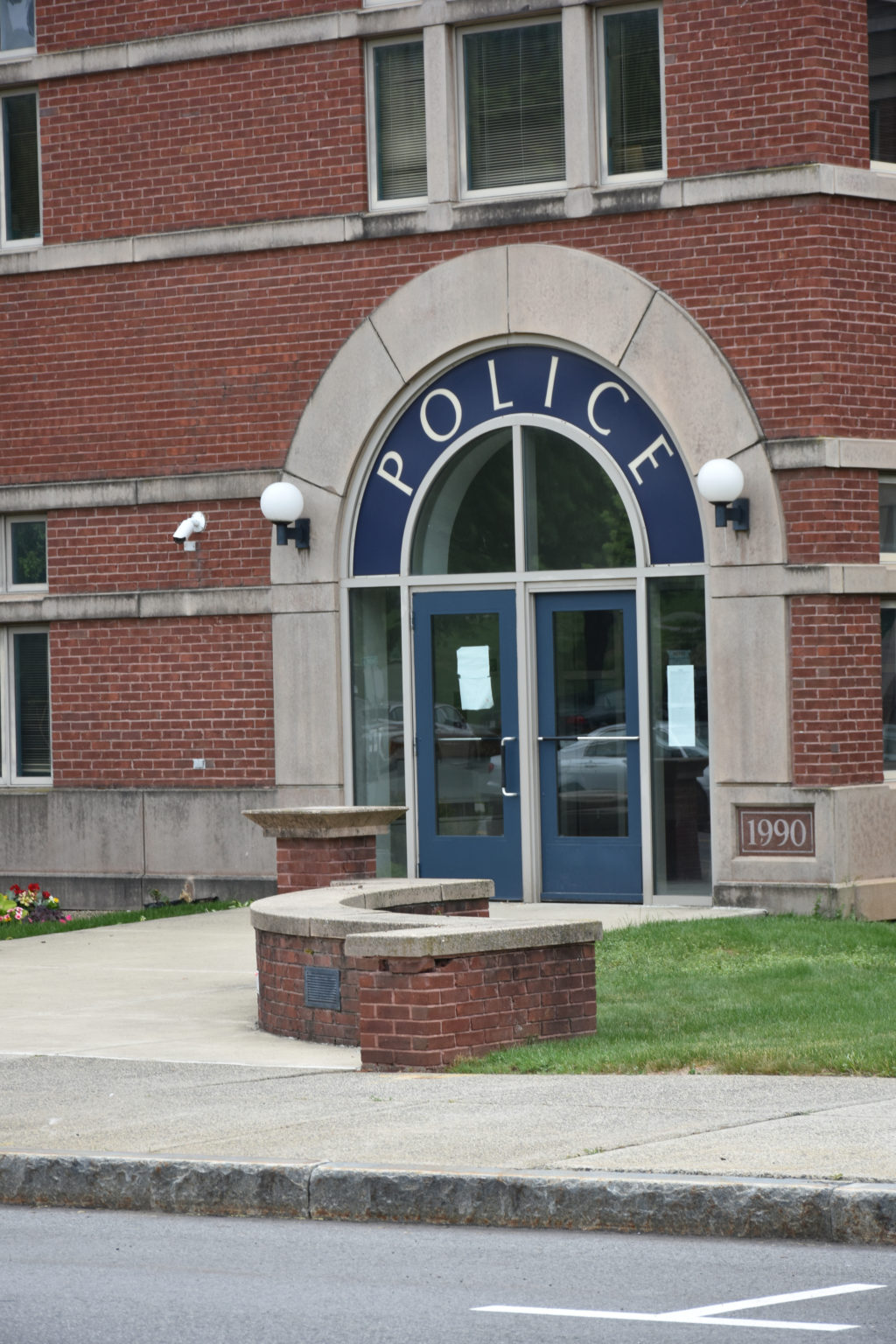Letter: Community Service Versus Policing Amherst

Entrance to Amherst Police Department. Photo: Art Keene
My belief is that we do not need to be looking for replacements for the police — but we do have a need for outreach, in a form like the street worker. We also need the original request answered, for a change in the force. We need our police to continue their job, but in a new way. We need a “re-do” from front to back for the folks who do the initial enforcement of our laws. And society also needs a service system doing its job in a new way – that of working with our folks in need. Two separate issues.
I believe the present is affected by the past. In doing an historical search one finds that the police have their roots in the efforts of powerful individuals who could pay one thug to keep others at bay, and we see evolution from that point forward. Boston 1838: corporate interests hired a force to protect their goods at the harbor, protecting their personal/commercial interests, later using the community’s funds (sound familiar?) to fund the same function. In the South, policing grew out of organizing to prevent slave revolts and to facilitate the capture of runaways. Pinkertons were hired by big business to send away hungry strikers and protect access to the factory by scabs.
There is a reason why citizens’ review boards were developed nationally. Oversight offered a counterbalance to oppressive historic trends built into policing from the beginning.
Following the large protests in Amherst and elsewhere in the spring of 2020 in response to the murder of George Floyd, members of the community mobilized to petition the city for redress. The City chose not to listen, went a different path and a panel developed a partial solution to the current problems associated with policing, suggesting an alternative responder service based on models that are used elsewhere. No police change. A human service model.
There is certainly need for such services. One large agency in Springfield supplies forensic psychologists for the court system. When a case arises around mental health needs, a pro is called in to assess the situation and services are provided based on flexible responses to needs rather than rigid law. There are drug courts, veterans courts, homeless courts, and more.
The new services envisioned for Amherst, to be housed at the Bangs Center, are designed as another supplement to meet needs in an increasingly complicated world. So first and primary: is something different needed here than what has been proposed, where these two kinds of services (law and human need) interface? Do our local needs require something other than the proposal for off-the-shelf interventions created for other towns and for other purposes?
Instead, what we need, for example, are police trained in a form of dispatch that can quell the community’s telephone calls “to do something” about issues unrelated to the law, with interventions that emphasize interfacing between communities of difference. What is needed is a bit of a crisis intervention by phone. Rather than immediately dispatching armed individuals to quell ‘a situation’ one could pass the info on to officers who are trained to perform a public service of inquiry and assistance, not ‘storm the walls’ searching for perpetrators. No need for separate funding, separate dispatch, or separate offices, or a whole new program. A real community policing approach in techniques (not just in name).
Secondly, the mental health field is finding the authoritative, expert-behind-the-desk model of mental health no longer holds sway for much of what currently ails America. Social, economic, corporate, and cultural parameters affect the individual, family, neighborhood, and community. Innovators are finding that other approaches are having far reaching positive effects. Creating personal connections with vulnerable populations is a beginning. Separating the policing function from these kinds of opportunities for community repair allows those on the other side of this interface to do what they are more expert at doing if they are properly funded. Part of community policing is showing care, being inquisitive rather than judgmental, listening to community members rather than telling.
Funding long term consultants to schools, police, city administration, and other institutions can go far in directly addressing community problems. Putting in place the recommendations of these consultants can create real change and it can be done at reduced community cost. Administrators listening to community complaints can save money and more directly address original requests for redress. My question is, can we foster such in our city that’s a town?
Chad Fuller is a resident of Amherst
